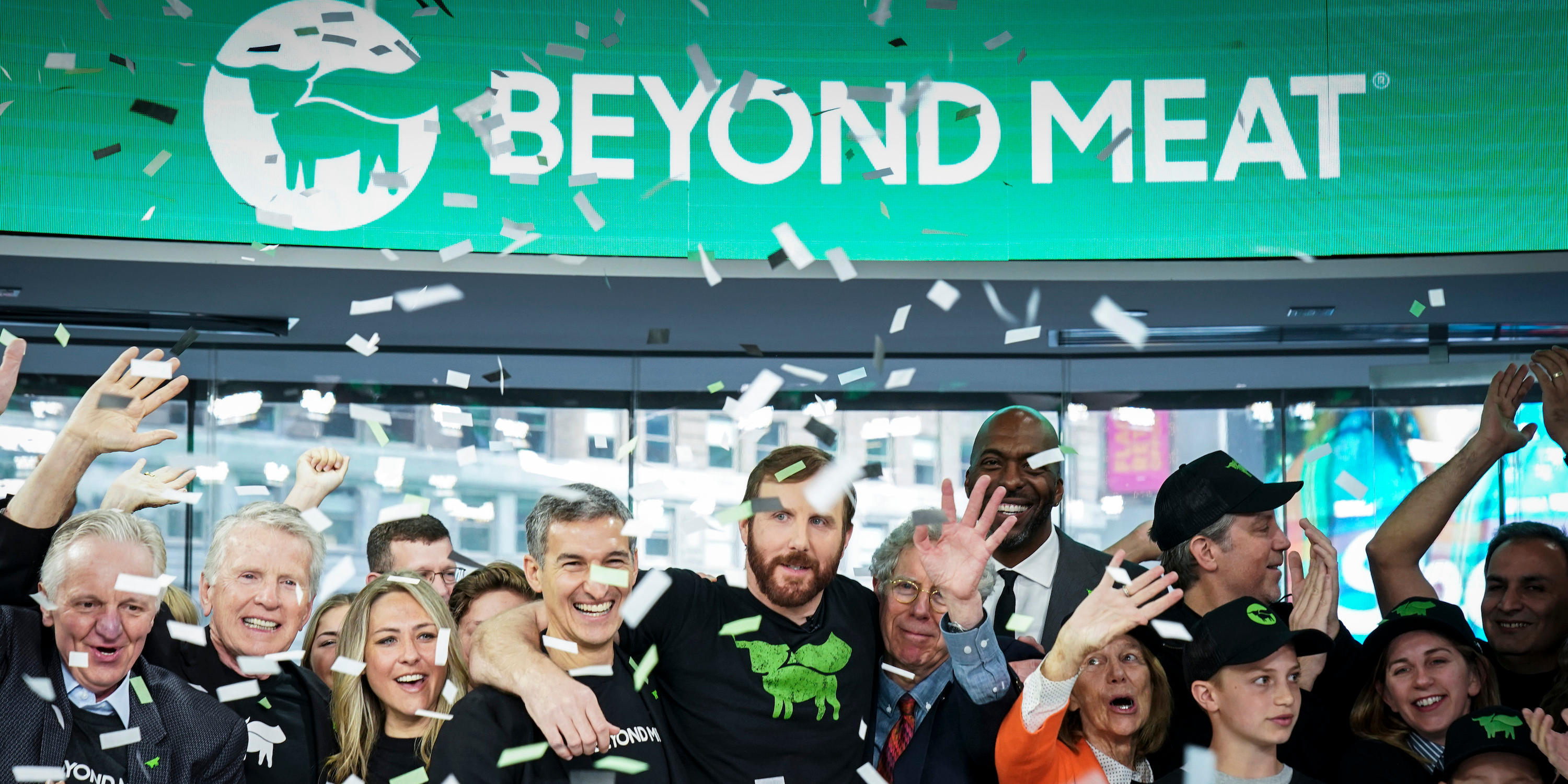- Bernstein lowered its Beyond Meat price target to $130 from $172 in a Friday note. Shares slid as much as 6.8% on the news.
- The lower target stems from Bernstein’s reduction of the company’s enterprise-value-to-sales multiple to 15 times from 20 times.
- Bernstein still expects that Beyond Meat will post solid full-year sales, but says investors will need an update on the competitive landscape from the plant-meat company.
- Watch Beyond Meat trade live on Markets Insider.
One Wall Street firm just slashed its price target on Beyond Meat.
Bernstein lowered its price target on shares of the plant-based meat alternative company to $130 from $172 in a Friday note and reaffirmed its “neutral” rating on shares. That’s a cut of nearly 25%.
The reflects a valuation of 15 times enterprise-value-to-sales as opposed to 20 times, which Bernstein previously used. Shares slid as much as 6.8% on the news.
The lower multiple is a result of Bernstein’s expectations for sales growth that’s stronger than previously expected. The firm thinks current revenue forecasts are failing to fully factor in retail partnerships with companies like Dunkin Donuts, McDonalds, and HelloFresh. Bernstein estimates that full-year 2019 sales will exceed management’s guidance of above $240 million and consensus forecasts of $261 million.
In order to get its forward multiple - and its enterprise value forecast - back in line, the firm lowered its price target.
The lowered price target comes just before Beyond Meat announces third-quarter earnings, due October 28. In addition to seeing solid quarterly sales numbers, "investors will want to hear an update on the competitive landscape, especially after Impossible Foods launched in retail," Howard wrote.
Since Beyond Meat's May initial public offering, Impossible Foods, a main competitor, launched in grocery stores in September. Like Beyond Meat, Impossible Foods also has a number of high-profile food partnerships with restaurants, such as Burger King.
And, a number of traditional packaged food companies have gotten in the plant-based meat game. Tyson Foods, which was an early investor in Beyond Meat, has launched competing plant-meat brands, as have Hormel, Kellogg, and Nestle.
The entry of larger brands "could present a risk, especially if their deeper pockets allow them to outspend Beyond Meat and enable them to develop better products or to market and distribute them," wrote Howard.
There are other risks to Bernstein's valuation, including the potential for low repeat purchase rates of Beyond Meat, problems with key ingredients, and its struggle to expand capacity to keep pace with skyrocketing demand.
In addition, "Beyond Meat's path to profitability remains uncertain," according to the note. If the company does not improve its profitability in the next three to five years, Howard wrote that it would pose a risk to Bernstein's estimates.
Beyond Meat is up 344% year to date.


